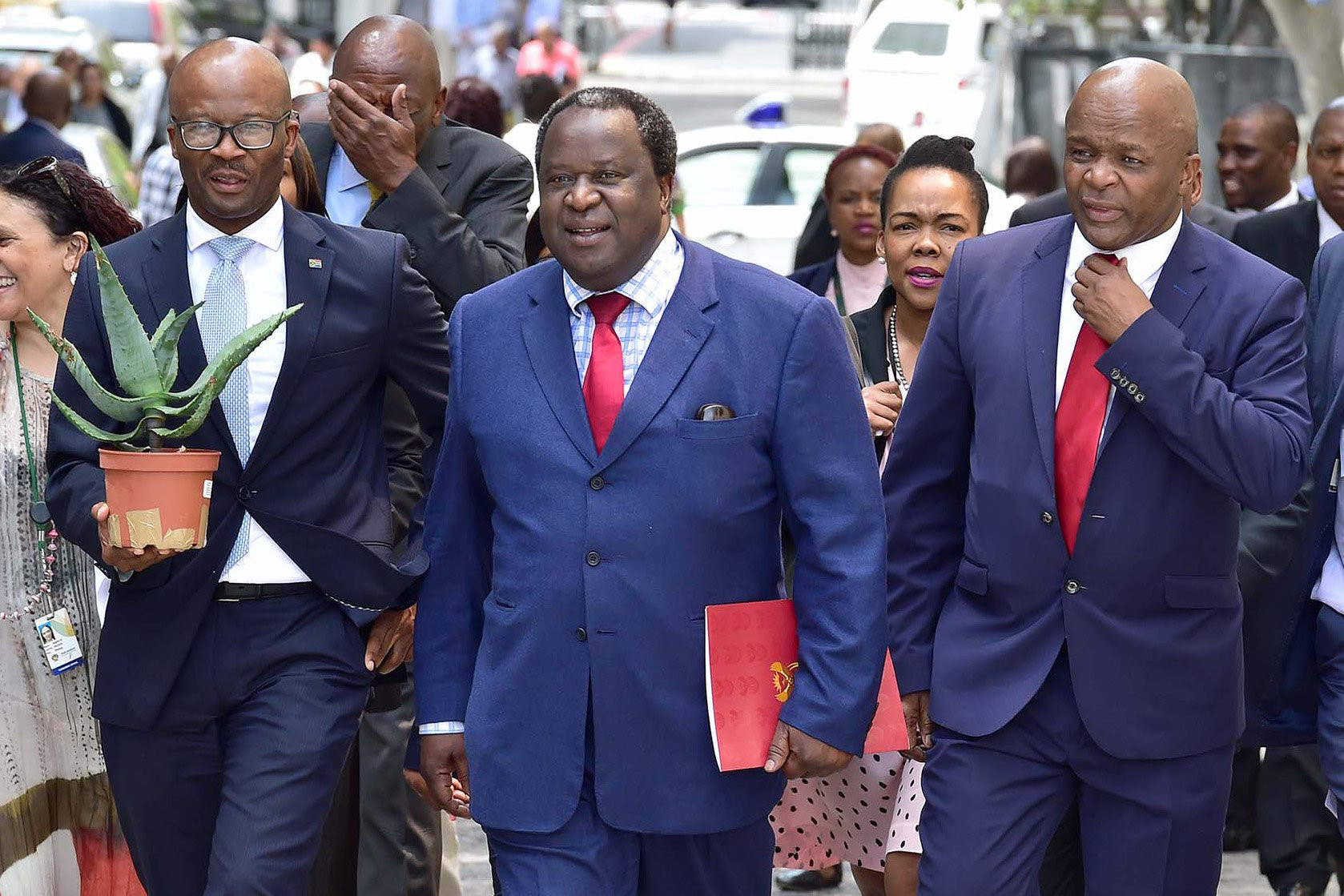A short, uninspired budget speech
It was the briefest budget speech in years, all over in an hour. Was its brevity designed to speed past the bad news or to disguise the lack of good news?
Author:
22 February 2019

It could have been worse. That is the best that can be said about the budget released on Wednesday. It does not have anything like the vision required to address the social and economic crisis in our country. But it is not, as many had feared, an outright austerity budget, and it is not as bad as last year.
Unlike last year, the key items of expenditure have not been slashed. Social grants, which are all that stand between a third of the country and starvation, have been kept in line with inflation. That only means they will buy as much as they did a year ago, and at R1 800 per month even the highest grants do not buy much, but in prior years Treasury has cut them by stealth by raising them less than inflation. This year they have kept pace.
Likewise, the budgets for basic education and health have been increased at a rate slightly above inflation. Funding for schools has not been cut, and some money has been redirected to front line staff. Unlike last year, municipal budgets—which fund the provision of basic services —have not been cut.
Related article:
Perhaps most surprisingly, there is some additional money for municipal and provincial infrastructure. This has been funded, in part, by reducing the budget for arms purchases by the military, but also by reducing the capital budget for passenger rail, at PRASA. Treasury will argue that this reflects PRASA’s inability to spend, but it also says national government has given up on fixing passenger rail for another year. Given how many working-class people depend on the rails, and how dysfunctional they are, that cannot be encouraging. Nonetheless, spending across the main infrastructure departments held up.
Of course, the major new item was the support to Eskom. That requires a whole article in itself, but the money is both necessary and deserved. It was not Eskom that decided not to build for 15 years, and then to build two gigantic coal plants, it was the Mbeki cabinet, stocked, we should recall, with Tito Mboweni’s allies. It was not Eskom that decided to keep the subsidies for renewable power off the main budget and on Eskom’s balance sheet. Pravin Gordhan, who had oversight of the utility for a year and appointed its board and a task team, but who nonetheless had no idea that a quarter of its generating capacity was about to trip two weeks ago, will now appoint a ‘chief restructuring officer’.
Related article:
That exhausts the neutral-to-good news in the budget. The bad starts with how the money for Eskom will be found. It will, primarily, be taken from the compensation of public servants. Defending that compensation is sometimes a badge of honour for progressives, but in many places the number and wages of bureaucrats, driven by the ruling party’s patronage machine rather than operational needs, really are too high. Most of the fat is in management but dealing with that would require taking on the middle class, and that will not happen.
So instead early retirement will be offered to tens of thousands of experienced civil servants. This is extraordinarily short-sighted. We have seen this before. In the 1990s and 2000s waves of older civil servants were retired. As they left, so did their knowledge, state capacity declined, and many had to be hired back as consultants on much higher fees.
Today, all the officials who joined at 30, 25 years ago, will be offered the door. In our crumbling schools and power stations and hospitals, it is not the incompetent managers in their 40s drawing millions of rand a year who will leave. The most experienced nurses and teachers and engineers will. Just as last time, the first to take the offer will be those who have the best prospects of employment elsewhere.
Related article:
What was preserved so that all this experience could be sacrificed? One old and failing programme after another. “Small business incubators”, the “jobs fund”, the whole cornucopia of failing industrialisation programmes. As one example among many, the “help to buy” housing programme gets an extra R1 billion. The housing market needs help.
There are a million jobs missing in housing construction, because working- and lower-middle-class households cannot get mortgages. That desperately needs fixing. There are different ways to tackle the problem, but the government’s current one is the worst possible. All it does is give a cash amount to first-time home buyers to help with the deposit, if they are already approved for a mortgage. The obvious risk is that home builders just add the amount of the subsidy to the asking price when selling to first-time buyers and the programme reaches a few thousand people at most.
Related article:
In short, on the spending side the same old failing programmes will all still be run by the same overpaid and failing managers, just with the people who know what they are doing hired back as consultants.
The story is much the same with raising revenue. The resuscitation of the big business and anti-smuggling units at SARS are welcome. The increases in fuel levies and “sin” taxes were the same ideas Treasury has used before. The “fiscal drag”, which means you pay more tax if your salary is raised to keep up with inflation, is similarly an old trick.
Never mind a higher VAT rate on luxury goods, or a digital services tax, or anti-transfer pricing mechanisms of the type even Donald Trump has introduced. When even such basic ideas seem bold and imaginative, it seems almost absurd to ask about restructuring the tax code to stoke domestic investment or shift the balance of debt and savings. Changing taxes changes behaviour, and dealing with our economic crisis requires massive shifts in behaviour, but it is clear no such response will be forthcoming from this Treasury.
Related article:
One line in Mboweni’s delivered speech, though it does not appear in the released text, has summed up this budget. He said near the end, “We can hope that we will get back to Minister Manuel’s days”.
The days of Trevor Manuel were good for business, but not ordinary people. These were the days when the electricity crisis was born because requests for funding new stations were denied. These were the days when Maria Ramos hiked port fees to the second highest in the world. These were the days when predatory lenders were let loose on the poor, and consumer indebtedness doubled, producing a mirage of growth.
Manuel’s era was one of few ideas and the imposition of right wing economic orthodoxy. That era had few ideas, but it is increasingly clear that its architects have not come up with any others in the intervening 10 years. On the evidence of this budget, they will not do so anytime soon.





